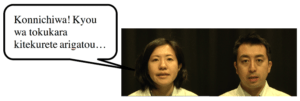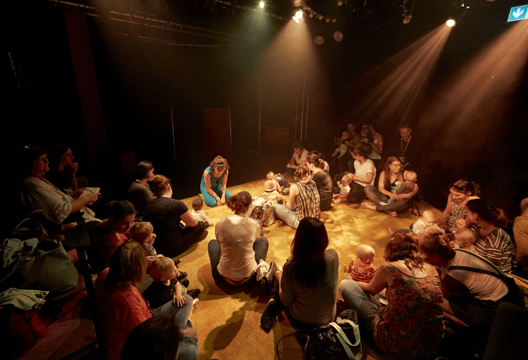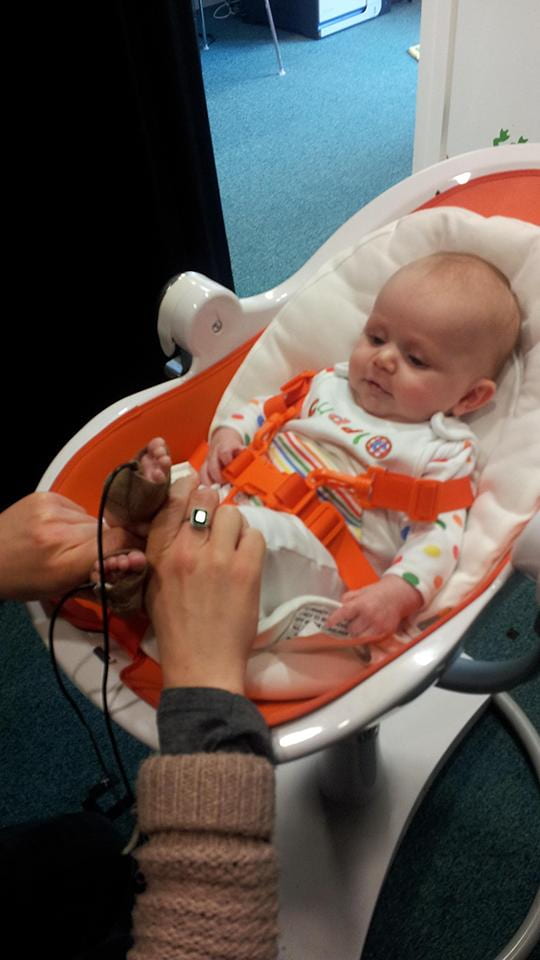In mid-April 2019 Natasa Ganea, a PhD student in Goldsmiths InfantLab, will be going to Chuo University in Tokyo, Japan for 6 weeks. Thanks to funding from the Economic and Social Research Council, she will have the chance to run a rare cross-cultural study on what babies know about gender.
About the study
Natasa wants to find out how babies perceive the gender of faces and voices. Infants will watch videos showing a woman and a man speaking in synchrony, side-by-side. As the infants watch the videos, they will hear a single female or male voice in the background. Natasa wants to know if they will match the gender of the voice to the correct face. She also wants to know if this is harder for faces of a different culture.

Will babies match the gender of the voice they hear to one of two faces on the screen?
Some infants will watch pairs of Caucasian-British speakers reading in English. Other infants will watch pairs of Asian-Japanese speakers reading in Japanese. Natasa predicts the task will be easier with faces from their native Japanese culture. When Natasa returns to the UK she will run the same study with British babies. She expects the pattern to reverse.
This is the final study of Natasa’s PhD which is all about how babies combine information from different senses to understand the world.
This is also the second collaboration between Chuo University and Goldsmiths InfantLab. Between 2016 to 2018, Jiale Yang a researcher from Chuo University visited Goldsmith’s InfantLab. Jiale and other members of the Yamaguchi Lab will help Natasa conduct the study.
By Catherine Zhao, 9 April 2019

